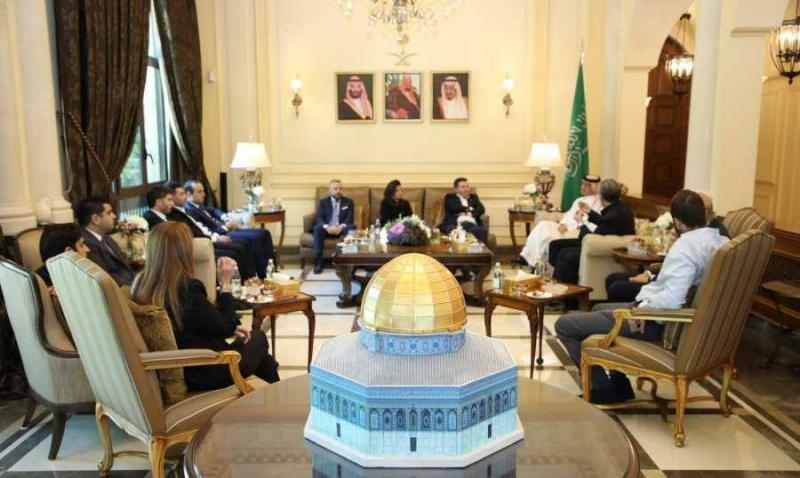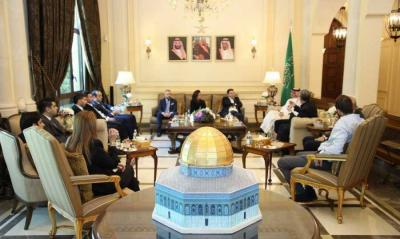Deputy Nadim Al-Jmayyel and a delegation of industrialists visited Saudi Ambassador Walid Bukhari at his residence to present proposals aimed at reopening Saudi borders to Lebanese industry. According to a statement from Al-Jmayyel's media office, "the delegation confirmed its openness to any discussion that contributes to establishing a mechanism for cooperation that serves the interests of both countries," conveying the difficulties faced by the industrial sector in Lebanon and its aspirations for collaboration with Saudi Arabia.
During the visit, Al-Jmayyel stated: "We are certain that you love Lebanon and are working diligently for its stability. We came today to say that the Lebanon you cherish needs your support to ensure that Lebanese industry, with its quality, excellence, and innovation, remains the safeguard and lifeline of the resilient Lebanese economy and a space for mutual cooperation with the Kingdom."
The media office distributed a letter of proposals submitted to the Saudi ambassador, which included the following statements: "We visit you today with a delegation of distinguished Lebanese industrialists recognized for their competence both Arab and internationally to find solutions to the long-standing problem caused by the closure of Saudi borders to Lebanese industry due to the actions of some Lebanese who have misrepresented it, negatively impacting bilateral relations and the Lebanese economy. Lebanese industrialists always look to the Kingdom as a supporter, especially amid the circumstances Lebanon has faced for over five years. Our presence today at your home is to affirm our continued love and appreciation for the Kingdom and to present proposals for constructive cooperation and finding solutions to reopen the borders to Lebanese industry, emphasizing that as a private sector, we are open to any discussions contributing to establishing a cooperation mechanism under your embassy's supervision that serves the interests of our two countries."
The letter proposed a set of ideas to contribute to finding solutions, including, but not limited to:
- Implementing prior monitoring with the assistance of Saudi customs before trucks, ships, or planes depart from Lebanon. This monitoring could be conducted by specialized international companies, as is done in many countries worldwide.
- Engaging in joint work to grant permission to companies and institutions that meet the requirements to transport their goods in a safe manner, thereby preventing those who wish to jeopardize the Kingdom's security and stability.
In this context, it was noted that the Lebanese pharmaceutical market remains open to Saudi pharmaceutical industry, which we are committed to. About 175 Saudi medications are registered in Lebanon, accounting for approximately 5% of the Lebanese market's size. Conversely, only 16 Lebanese medications are registered in the Kingdom, including foundational innovative medications that were exported to the Kingdom to meet patient needs before the crisis. With the halting of their export, these factories have incurred significant losses of over 15 million US dollars annually. Despite this, there remains demand for these medications today, though it is impossible to export them.
Conversely, Lebanese pharmaceutical factories insist on cooperating with Saudi pharmaceuticals. For instance, one Lebanese pharmaceutical factory has signed a cooperation agreement with a prominent Saudi factory to manufacture its medications in Lebanon under license. Some pharmaceutical manufacturers are also seeking to invest in the Kingdom and collaborate with local factories for local manufacturing.
Exports of Lebanese medicine should be exempt from any sanctions on trade exchanges, especially since they are monitored by health authorities and customs in both Lebanon and the Kingdom, and medicines are subject to tracking and tracing systems applied in both countries.




